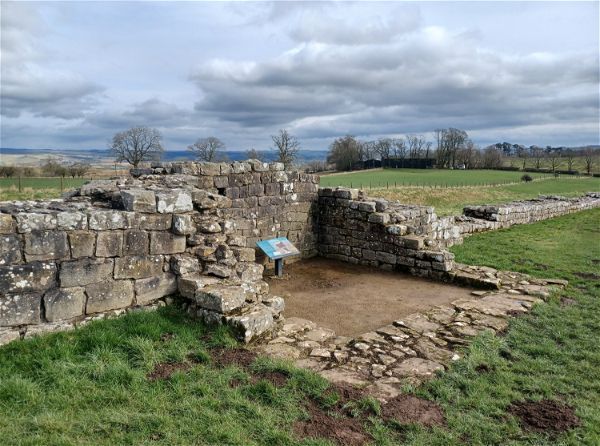Temple of Mithras
Religious Place In Simonburn, Northumberland
A Roman Temple dedicated to the God Mithras near to Brocolitia Fort on Hadrian's Wall.
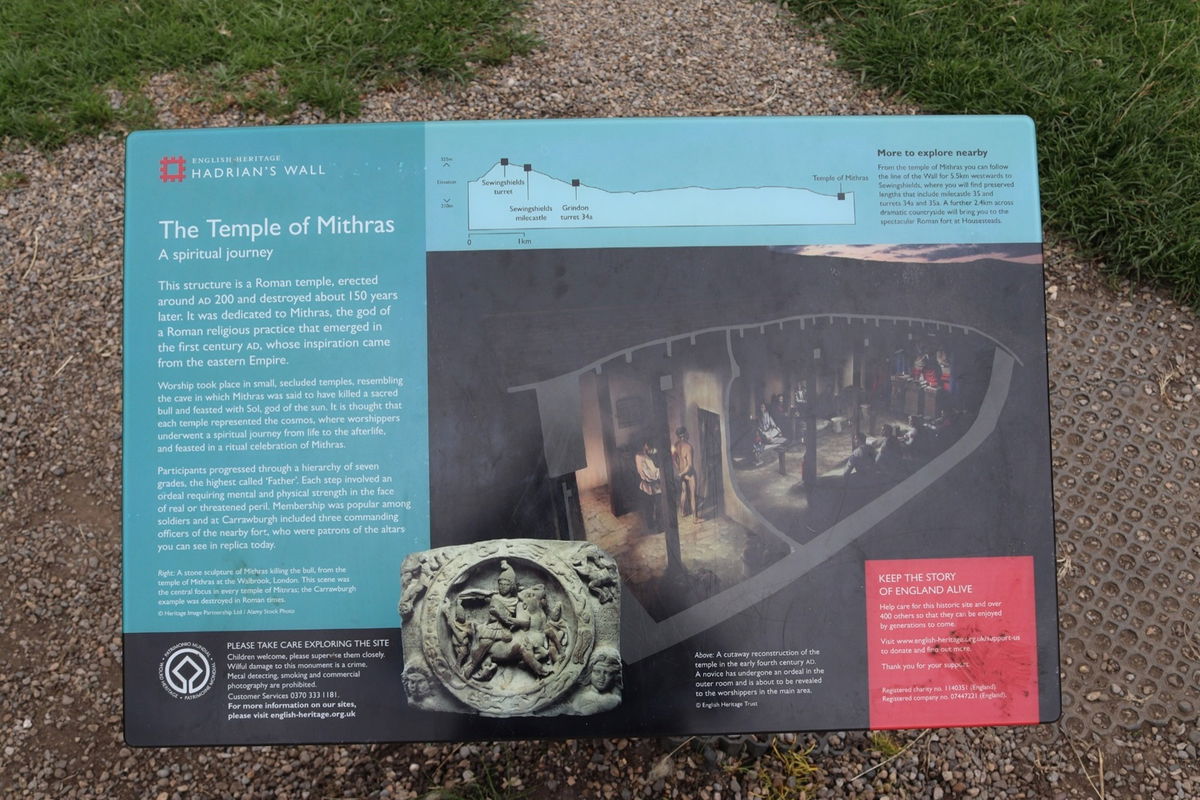
There are many forts and buildings along the 73 miles of Hadrian's Wall, but one of the least known, but possibly most interesting, is the Temple of Mithras near to Carrawburgh Fort. The temple is a 'Mithraeum' or temple dedicated to the Roman god Mithras, who was a sun god. The cult of Mithras was very popular among the soldiers of the Roman Legions, perhaps understandable for those who were stationed in the wilds of Northumbria!


The Temple can be found a short walk from the car park, near to the largely unexcavated fort of Carrawburgh. Carrawburgh was known as 'Brocolitia' to the Romans, which is nothing to do with Broccoli but possibly related to the original Celtic name for the areas which was 'Badger Holes'. In contrast to the fort, the temple has been well excavated and examined and the altars that are on display there are actually copies of the actual Mithraic altars found during those excavations.
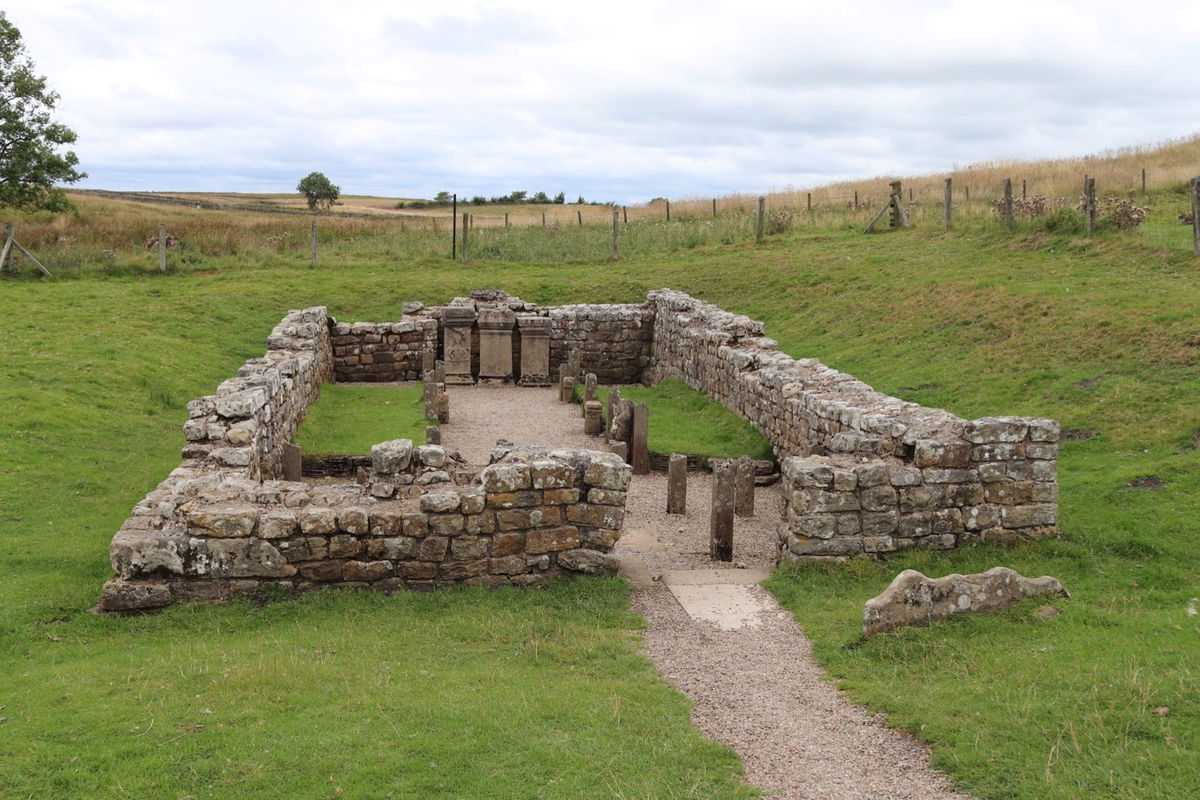
The Temple was founded in the 3rd century, and went through three distinct phases of construction. The first phase began around AD 200, and involved the creation of a rectangular temple measuring about 5.6 by 7.9 metres. Following this in around AD 222 a second phase saw an extension added to the north. During the course of the 3rd century there was further rebuilding and interior redesigning and in AD 297 the temple was destroyed. It was reconstructed once again at the beginning of the 4th century before finally being destroyed for good in around AD 330, perhaps by Christians who saw Mithraism as a threat.
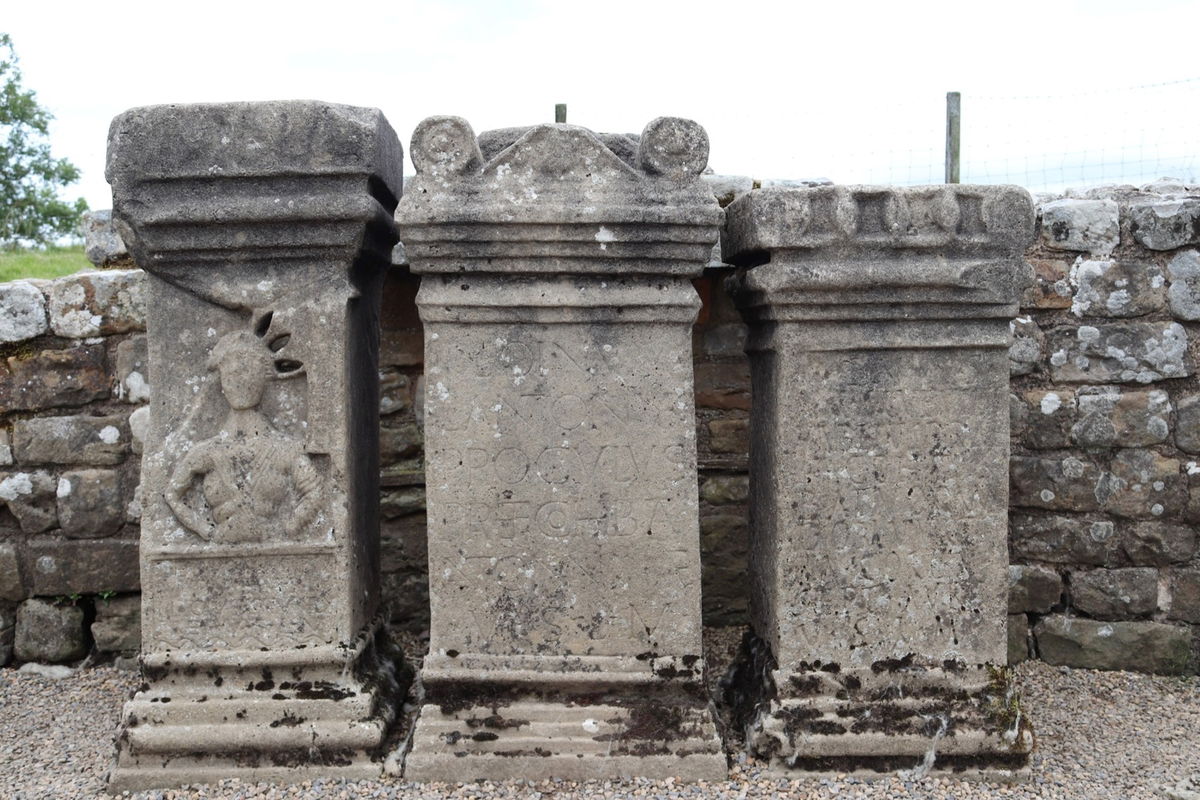
Other items found during the excavations of the temple include a large altar to the 'Genius Loci' or spirit of the place along with a shrine to the water nymph Coventina, although this can no longer be seen.
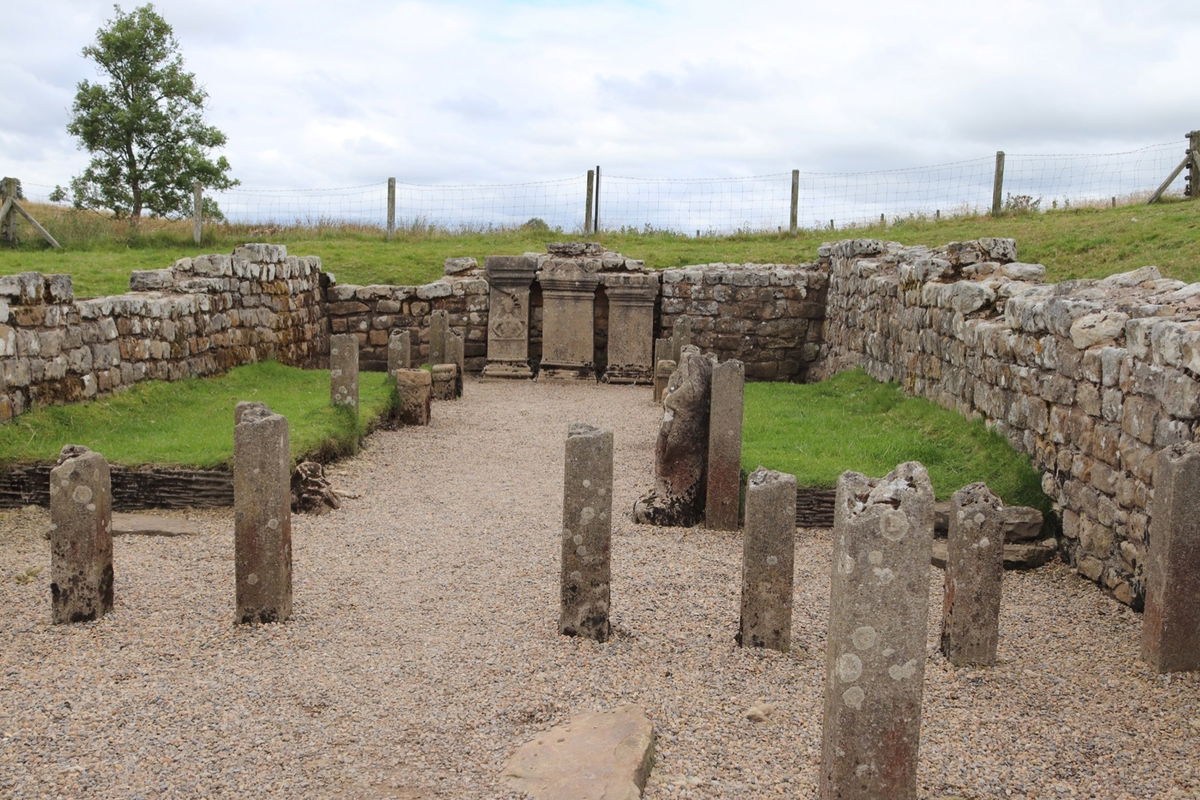
There is a full sized replica of the temple in the Great North Museum in Newcastle and it is shown as how it would roughly have looked in the 4th century with the original altars in-situ. The altars, statues and wooden posts found at the actual temple are all plaster casts of the originals.
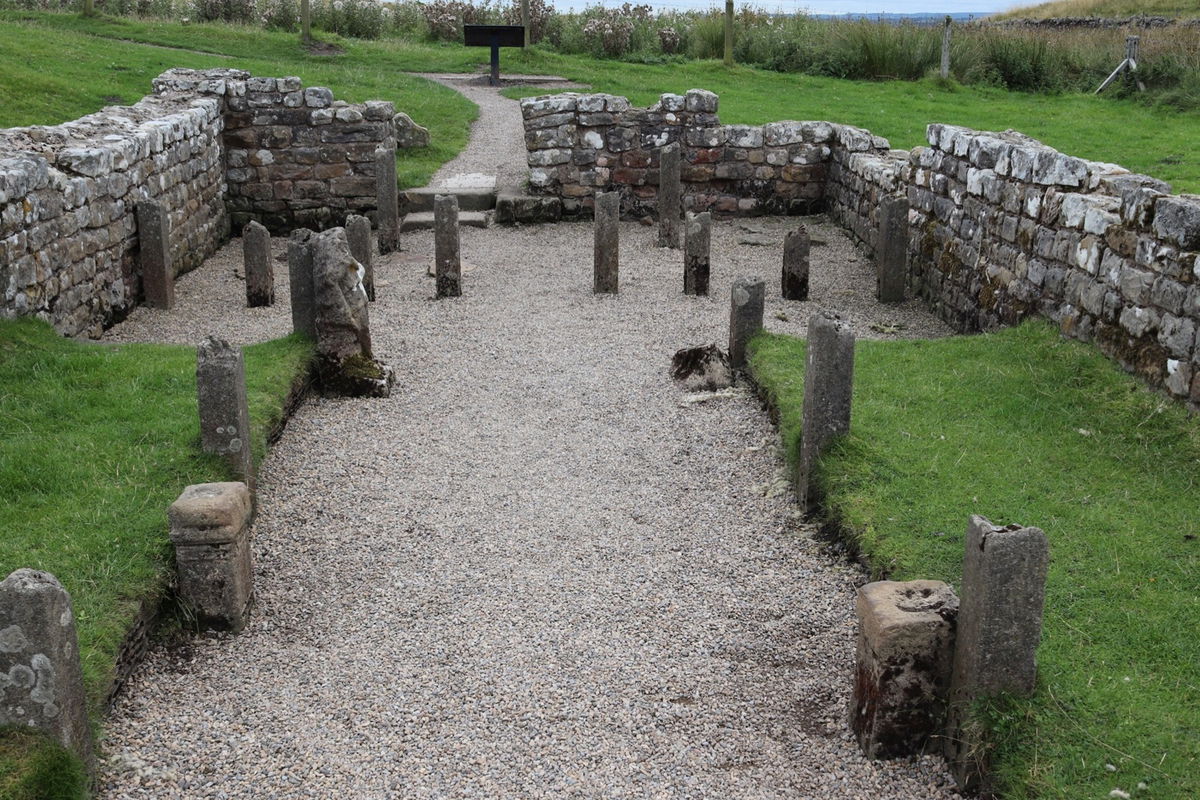
Inside the temple entrance is a small lobby with a hearth and statue of a mother goddess. A wooden screen separates the lobby from the main temple, within which are statues of Mithras' attendants Cautopates and Cautes. A narrow central passage is flanked by two earthen benches. The far end of the temple housed three altars, one depicting Mithras with his crown. Rituals, including sacrifices, would be conducted in this altar area.
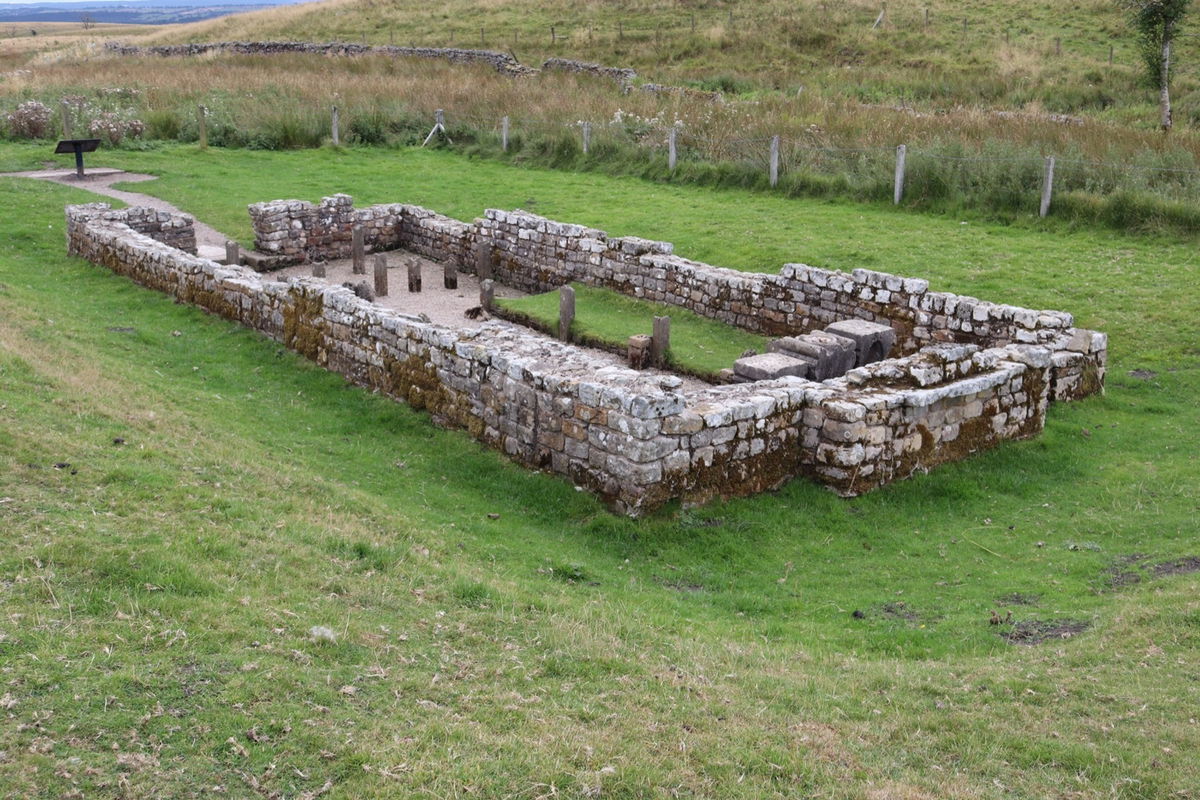
So who or what is Mithras / Mithraism? It was based on the story of Mithras, an Eastern sun god, who entered a dark cave in which lived a bull. The bull was, according to legend, the first creature created on earth. Mithras killed the bull within the cave and the bull's blood gave life to many creatures. This rather violent concept of new life from sacrifice was a bit much for some Christians who became highly opposed to Mithraism.
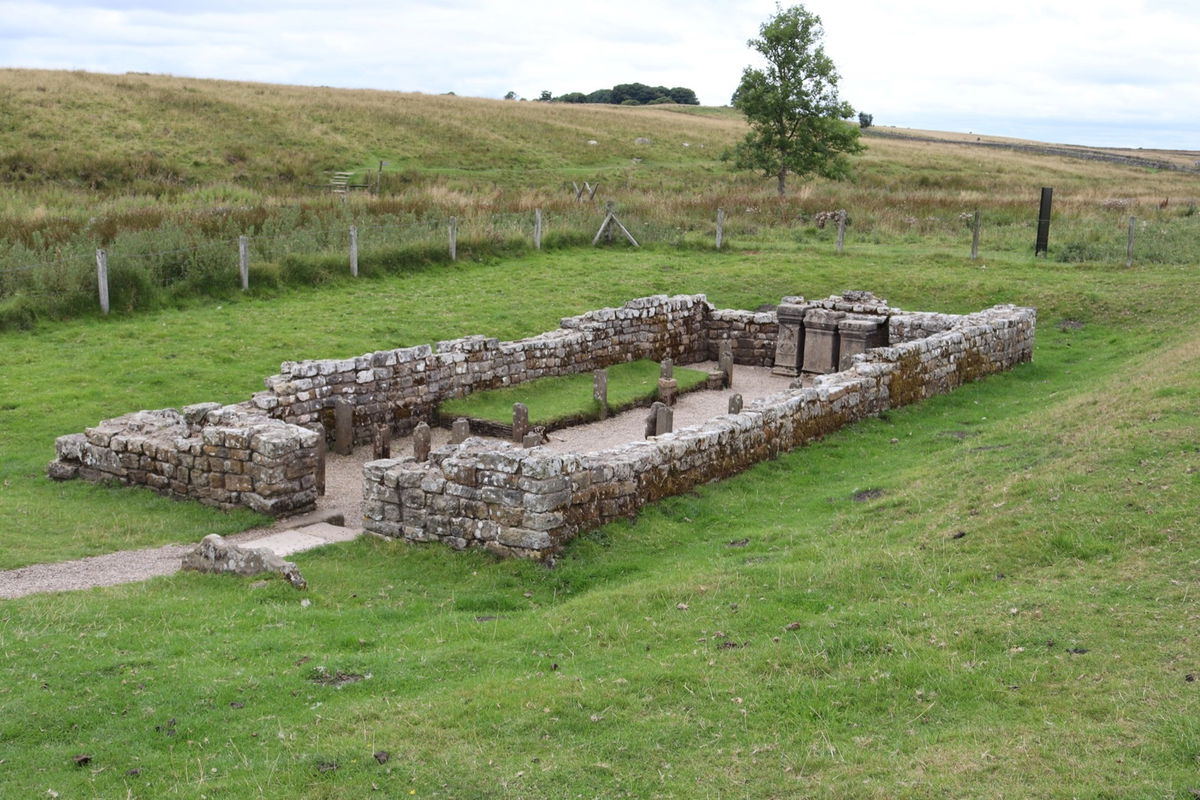
Mithraic temples were small, cramped places, meant to represent the bull's cave. At one end stood three altars, and before them a large sculpture or painting of Mithras. Mithraic ceremonies involved pulling back a curtain high in the wall so that sunlight shone on the depiction of Mithras slaying the bull, showing the power of light over darkness. If you look closely at the altar at the northern end of the temple you will notice that the Crown of Mithras is pierced by 3 holes, behind which a candle would be placed, so that light would shine through it into the darkness of the temple.

Get 2 points if you have visited this place. Already visited by 156 VIPs.
Login to the VIP area to add places to your bucket list, mark them as visited and more importantly see where you rank on the league table.
How To Find Temple of Mithras
Where Is Temple of Mithras?
Lat / Long
55.033837, -2.222512
What three words
Where To Park For Temple of Mithras?
Lat / Long
55.035535, -2.220678
What three words
Brocolitia Car Park is a 100m walk away just off the B6318
Contributed by Andrew Gardner
I love being outdoors, in nature, and experiencing the relaxation it brings. Wandering through the northern countryside seeing unexpected buildings, historic places and occasionally surprised wildlife is one of life's great pleasures.
More Places from Andrew
More Places In Simonburn
Find more fabulous places in Simonburn, Northumberland and if you know of a place we haven't listed, then let us know.
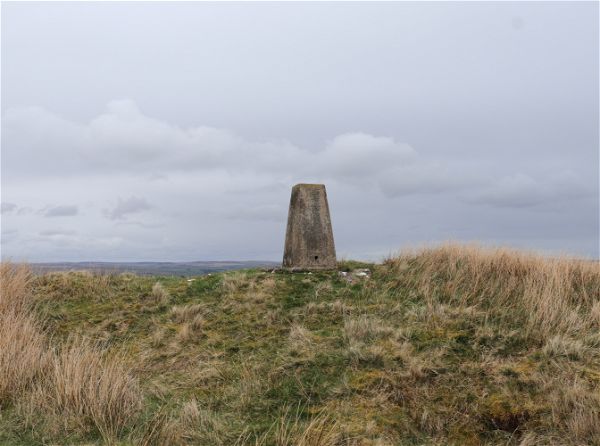
Ravensheugh Crags Trig Point
Trig Point Simonburn NorthumberlandThe trig point sitting on top of Ravensheugh Crags (256m) near Simonburn.
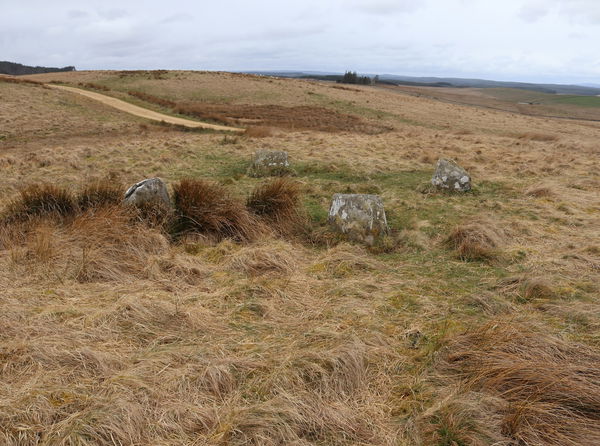
Goatstones
Stone Circle Simonburn NorthumberlandA Bronze Age four-poster stone circle located near Ravensheugh Crags in Northumberland.
More Religious Places
So this religious place wasn't enough and you want more? Don't worry we have you covered.
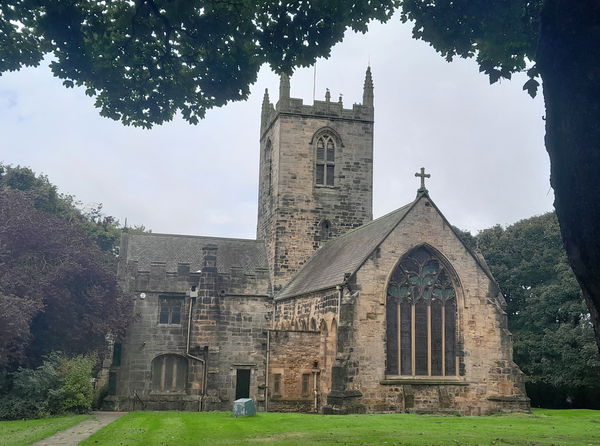
St. Michael And All Angels Houghton-le-Spring
Religious Place Houghton-le-Spring Tyne And WearDating from the late 12th century, St Michael and All Angels' Church is the parish church of Houghton-le-Spring and contains the tomb of Bernard Gilpin.

St Andrew's Auld Kirk
Religious Place East Lothian BordersThe remains of St Andrew's Kirk, dating from around the 1100s and with links to the North Berwick Witch Trials.

Church of St Ebba
Religious Place Beadnell NorthumberlandAn 18th Century church dedicated to St Ebba.
Never Miss A Fabulous Place
If you are afraid of missing out on all the fabulous places we post, or just want to be the first to know, then sign up to the Fabulous North.
Each week we will email you all the brand new places that we visit.
Sign Up To AlertsFind Us On Facebook
We post all our new places daily on our Facebook Groups page, so join the group today and be notified when we add a new place.
Join Our Facebook GroupTemple of Mithras was listed in Religious Place // Northumberland // Simonburn

